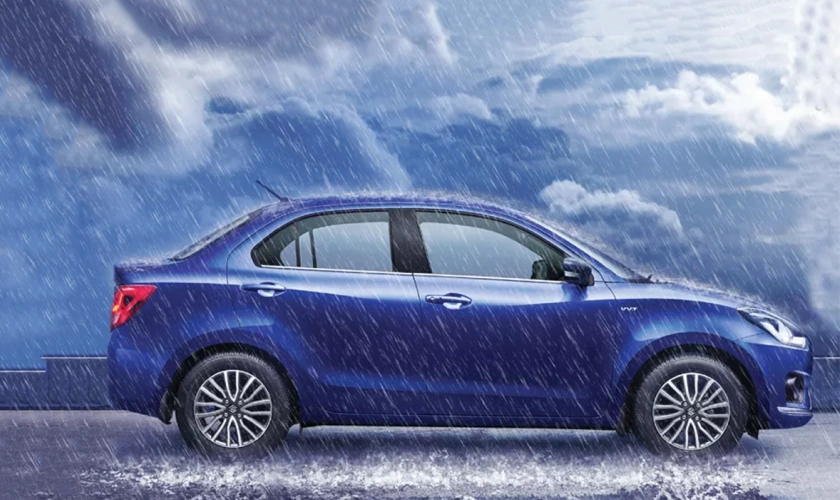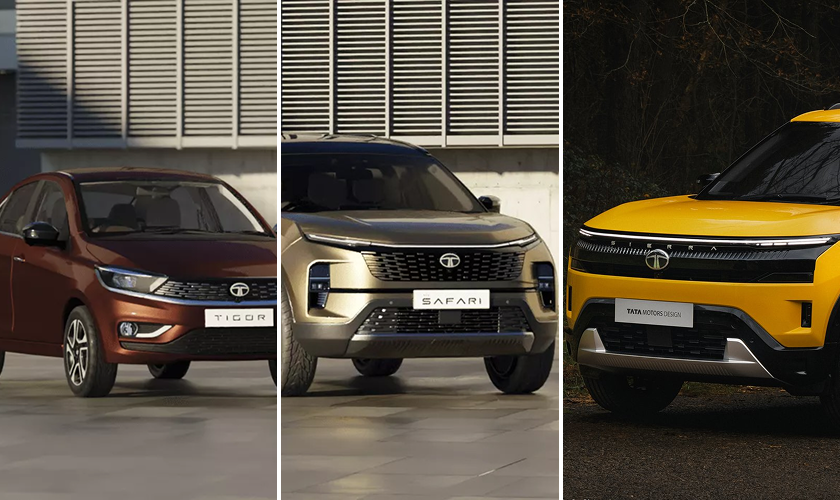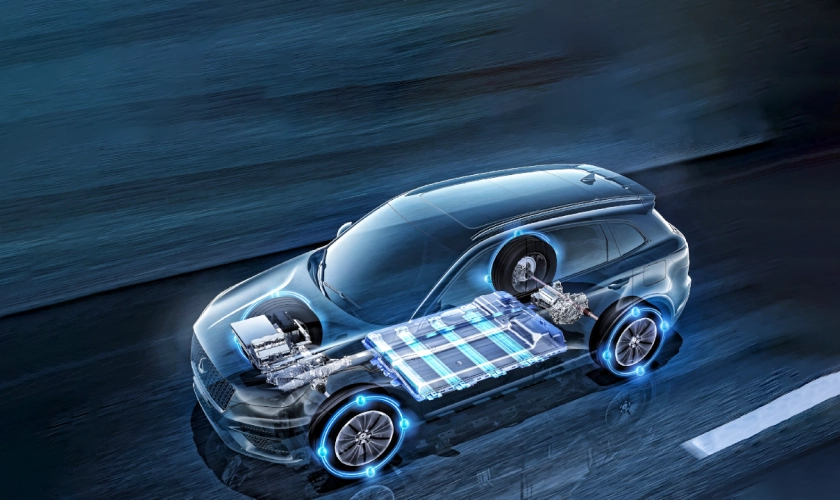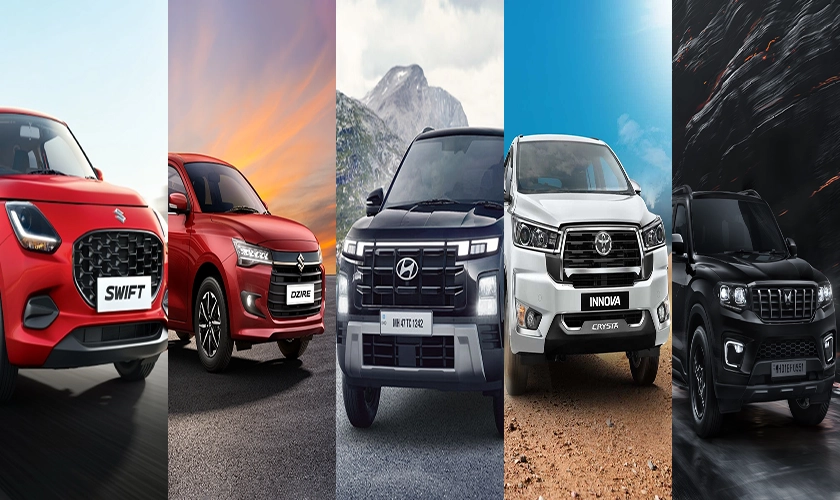
Login to your account
Enter your mobile no. to receive one time password!
OTP Verification
Please enter the one-time password sent to your phone.
OTP Successfully sent to +91-XXXXXXXXXX

Enter your mobile no. to receive one time password!
Please enter the one-time password sent to your phone.
OTP Successfully sent to +91-XXXXXXXXXX
 CarOnPhone
CarOnPhone
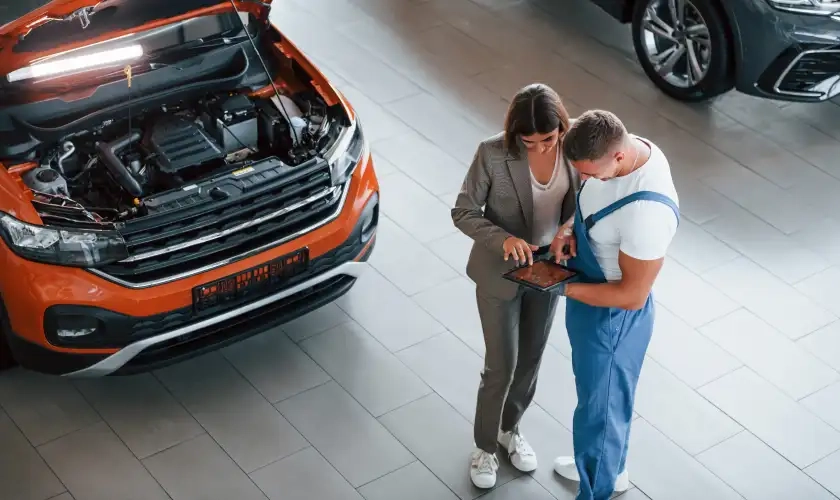
Step-by-step guide to spotting engine issues before you buy a second-hand car. Practical tips you can use even if you’re […]
 CarOnPhone
CarOnPhone

Why road trips are becoming India’s favorite way to travel. Practical picks for the best cars for Indian road trips. […]
 CarOnPhone
CarOnPhone
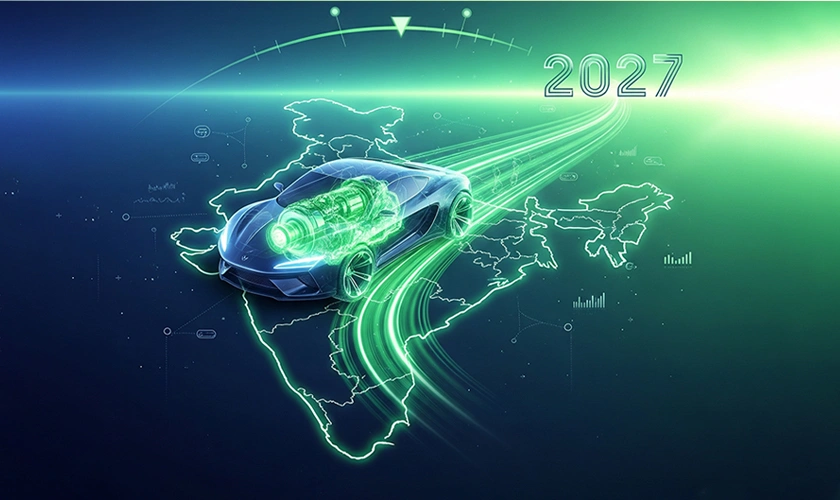
Linking E27 to Flex-Fuel, CAFE 3 norms, and how automakers will adapt. Policy goals, the tech trade-offs, and what it […]
 CarOnPhone
CarOnPhone

Step-by-step guide to spotting engine issues before you buy a second-hand car. Practical tips you can use even if you’re […]
 CarOnPhone
CarOnPhone

Why road trips are becoming India’s favorite way to travel. Practical picks for the best cars for Indian road trips. […]
 CarOnPhone
CarOnPhone

Linking E27 to Flex-Fuel, CAFE 3 norms, and how automakers will adapt. Policy goals, the tech trade-offs, and what it […]
 CarOnPhone
CarOnPhone

Mindset, must-haves, and hurdles shaping the Tier 2 car market India. How these buyers are driving growth, shifting choices, and […]
 CarOnPhone
CarOnPhone

Step-by-step guide to spotting engine issues before you buy a second-hand car. Practical tips you can use even if you’re […]
 CarOnPhone
CarOnPhone

Why road trips are becoming India’s favorite way to travel. Practical picks for the best cars for Indian road trips. […]
 CarOnPhone
CarOnPhone

Linking E27 to Flex-Fuel, CAFE 3 norms, and how automakers will adapt. Policy goals, the tech trade-offs, and what it […]
 CarOnPhone
CarOnPhone

Mindset, must-haves, and hurdles shaping the Tier 2 car market India. How these buyers are driving growth, shifting choices, and […]
Cars
Car Services
Assistance
Account settings
Policies
Blog Chapters
Toggle16 Jun 2025, 06:43 PM
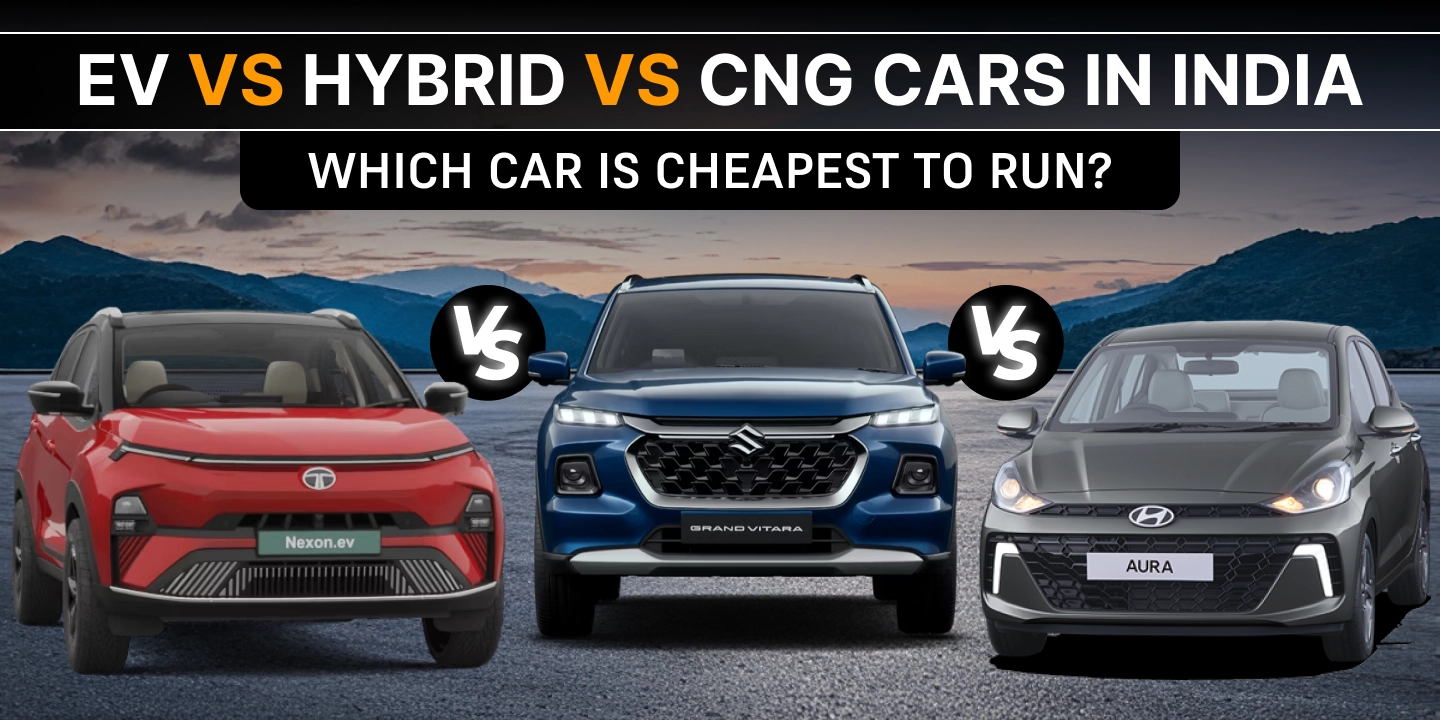
Which Car is Cheapest to Run? EV, Hybrid, or CNG Cars in India – A Simple Guide for Young Readers! explains running costs clearly. Hey everyone! Have you ever wondered what makes a car move? Or, more importantly, what it costs to make it go? It’s not just about the price tag when your family buys the car. It’s also about how much money you spend every time you drive it, just like how much money you spend on snacks every week!
In India, we have many kinds of cars that use different types of fuel. Today, we’re going to talk about three popular ones:
Let’s find out which one is the cheapest to run, just like figuring out which snack gives you the yummiest goodness for your money!
Blog Chapters
ToggleEvery time a car moves, it uses up some kind of energy. This energy costs money. Think of it like this:
Let’s dive into each type of car!
Imagine your favorite video game console or phone. You plug it in to charge, right? Electric cars work just like that! They have a big battery that stores electricity, and when you drive, the electricity powers the wheels. Young buyers find Which Car is Cheapest to Run? EV, Hybrid, or CNG Cars in India – A Simple Guide for Young Readers! useful.
How Much Do They Cost to Run?
EVs are usually the cheapest to run when it comes to “fuel” cost.
Good Things about EVs (Pros for Buyers):
Not-So-Good Things about EVs (Cons for Buyers):
Hybrid cars are really clever. They have a petrol (or sometimes diesel) engine just like a normal car, BUT they also have an electric motor and a small battery. They can switch between using petrol, using electricity, or using both at the same time! It’s like having a superhero car with two different powers! Save money by understanding Which Car is Cheapest to Run? EV, Hybrid, or CNG Cars in India – A Simple Guide for Young Readers!.
How Much Do They Cost to Run?
Hybrid cars save you money on petrol because they use electricity sometimes.
Good Things about Hybrids (Pros for Buyers):
Not-So-Good Things about Hybrids (Cons for Buyers):
Battery is Smaller: The battery in a hybrid car is smaller than in an EV, so it can’t drive on electricity alone for very long.
CNG cars run on Compressed Natural Gas. This gas is stored in a special cylinder (a big tank) usually in the boot (the back storage area) of the car. Many taxis and city buses in India use CNG because it’s cheaper.
How Much Do They Cost to Run?
CNG is usually cheaper than petrol, making these cars cheaper to run than petrol cars.
Good Things about CNG Cars (Pros for Buyers):
Not-So-Good Things about CNG Cars (Cons for Buyers):
Let’s put it all together, from cheapest to a bit more expensive for running cost per kilometer (based on driving a normal amount in Indian cities and charging/filling up at common places):
Winner for Daily Running Cost: EVs (especially if you charge at home) are the clear winners for being the cheapest to run every day!
| Factor | Electric Vehicles (EVs) | Hybrid Cars (Strong Hybrids) | CNG Cars |
|---|---|---|---|
| Fuel/Energy Cost per km | Lowest (≈ ₹1 - ₹1.5/km) | Moderate (≈ ₹3 - ₹4.5/km) | Low (≈ ₹2 - ₹3.5/km) |
| Maintenance Cost | Lowest (fewer moving parts, no oil changes) | Moderate (engine & electric motor) | Slightly higher (additional CNG kit components) |
| Initial Purchase Cost | Highest (due to battery tech) | Moderate to High (more than petrol/CNG) | Lowest (often comparable to petrol variants) |
| Fueling Infrastructure | Improving but still developing (charging stations) | Widespread (petrol pumps) | Growing, but still less widespread than petrol |
| Environmental Impact | Zero tailpipe emissions (depends on electricity source) | Lower emissions than petrol, but not zero | Lower emissions than petrol/diesel |
Remember, while EVs are super cheap to run each day, they usually cost more money to buy at first. So, if your family drives a lot, like more than 50-60 kilometers every day, then the savings from an EV can add up very fast and make up for the higher buying price in a few years.
If your family doesn’t drive very much, or if you live somewhere where it’s hard to find EV chargers, then a CNG car might be a better choice because it’s cheaper to buy and still very cheap to run compared to a patrol car.
Hybrid cars are a good middle ground if you want to save petrol and help the environment a bit, but still want the ease of filling up at any petrol pump.
Choosing a car at CarOnPhone is a big decision for your family, and it’s exciting to know how these different types of cars work and how much they cost to keep moving on the roads of India! Which one sounds most fun to you?
CarOnPhone is your one-stop destination to see all upcoming cars, latest cars, released cars, and EV Cars, and compare Cars in all Car Brands. Stay tuned and follow us to update yourself on the automotive world.





